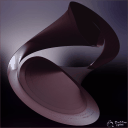
Physical Science: Units of Study
Kelleen Farrell, Instructor
E-Mail: kfarrell@sonic.net
Website: kidzlearn.org
Phone: 209-257-5527 (w)
Unit 1 : Scientific Method
Objectives:
students will be able to:
- define the scientific method
- identify the steps in the scientific method
- use the scientific method to perform a series of experiments
Lessons: This is a review of 7th grade science. Students will spend two weeks reviewing the steps of the scientific method through experimentation and class discussions.
Assessment: Journal check, weekly quizzes, lab report.
Unit 2: The Chemistry of Matter
students will be able to:
- describe the difference between chemical and physical properties of matter.
- explain the importance of the atom and label the parts.
- describe the periodic table
- describe the types of reactions.
- define and describe acids, bases, and salts.
- balance chemical reactions
- describe covalent and ionic bonding
Lessons: Daily discussions based on textbook readings and labs and demonstrations. Weekly labs. Chapters 1, 2, 3, 4, 12,1 3, 14, 15, and 16 will be covered in this unit.
Assessment: Journal check, weekly quizzes, lab reports, unit test.
Unit 3: Motion and Forces
students will be able to:
- Analyze the relationship of velocity and acceleration
- Determine the net force on an object
- Explain why friction occurs
- List the types o friction and give examples of each
- Explain the law of universal gravitation
- Explain the affect of gravity on motion
- State and apply Newton's Laws
- Describe how fluids exert pressure and analyze how depth affects this.Explain the relationship between fluid pressure and bouyant force
- Explain Bernoulli's Principle
Lessons: Daily discussions based on textbook readings, labs and demonstrations. Weekly labs. Chapters 5, 6, and 7 will be covered in this unit.
Assessment: Journal check, weekly quizzes, lab reports, unit project.
Unit 4: Energy: Electricity and Magnetism
students will be able to:
- define electricity and magenetism
- explain how electricity and magnetism work
- use this information to build a circuit
Lessons: Daily discussions, labs, demonstrations and computer simulations. Weekly labs. Chapters 8, 9, 10, and 11 will be covered.
Assessment:Journal check, weekly quizzes, lab reports, unit project.
Unit 5: Astronomy and Weather
students will be able to:
- Explain the process of planet formation
- Compare the planets
- Explain how the sun produces energy
- Describe what causes the phases of the earth's moon
- Explain impact theory
- Explain the Big Bang Theory
Lessons: Daily discussions based on textbook readings, labs and demonstrations.
Assessment: Journal check, weekly quizzes, lab reports, unit test. Weekly labs. Chapters 17, 18, and 19 will be covered.
Unit 6: Geology
students will be able to:
- Identify the types of rocks
- Explain the forces that form rocks
- Explain the formation of soil
Lessons: Daily discussions based on textbook readings, labs and demonstrations.
Assessment: Journal check, weekly quizzes, lab reports, unit test. We will be using supplemental texts for this unit.